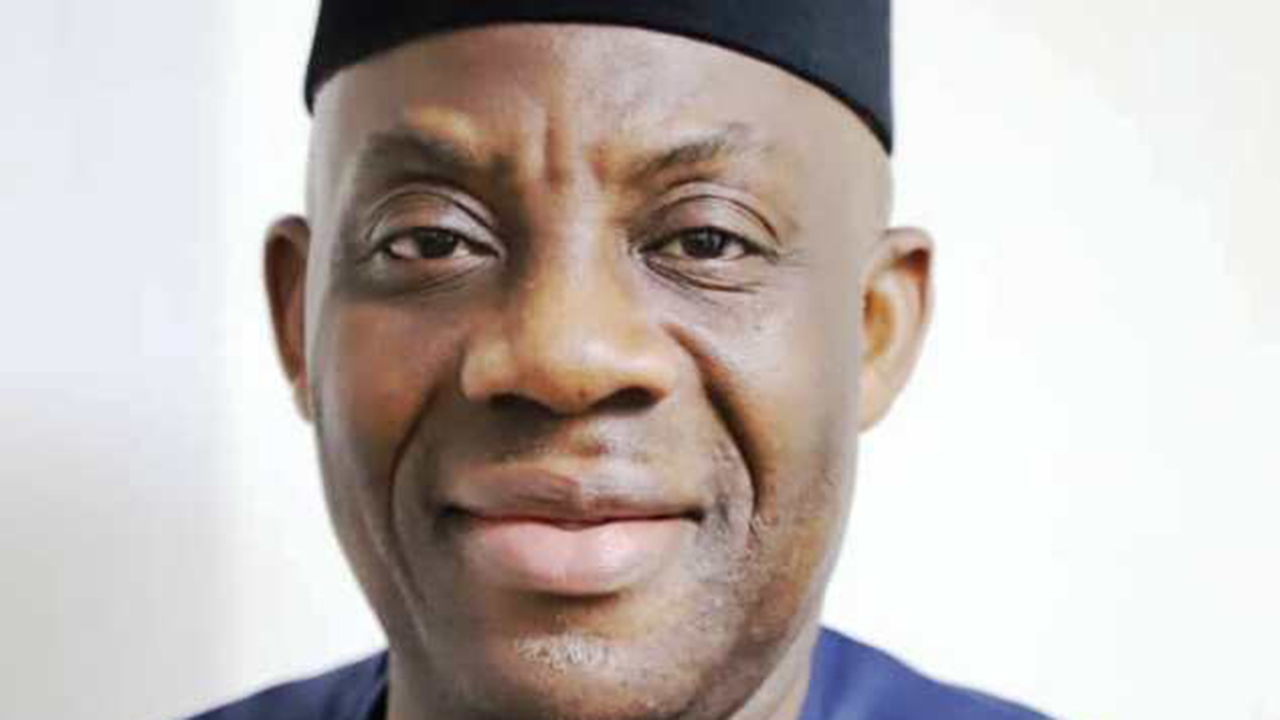Shortly after being sworn in as President on May 29, 1999, President Olusegun Obasanjo (88), delayed signing the Proclamation of the first sitting of the National Assembly. The delay lasted a few days during which there was suspense.
Subsection 3 of Section 64 of the 1999 Constitution states that “subject to the provisions of this Constitution, the person elected as the President shall have power to issue a proclamation for the holding of the first session of the National Assembly immediately after his being sworn in, or for its dissolution as provided in this section”.
The delay in signing the proclamation by President Obasanjo was deliberate. The then ruling party PDP zoned The Senate Presidency to South East. President Obasanjo wanted his choice to be the Senate President. His choice was Senator Evan Enwerem. The choice of the majority of the PDP Senators was Senator Ike Omar Sanda Nwachukwu (84), who represented Abia North.
Senator Nwachukwu was a retired general in the Army, a Minister of Foreign Affairs from December 1987 to December 1989 and also the former Military Governor of Imo state from January 1984 to August 1985. General Nwachukwu’s mother was a Princess from the Katsina Royal family.
President Obasanjo’s vice at that time, Turakin Adamawa, Alhaji Atiku Abubakar GCON, wanted Dr Chuba Wilberforce Okadigbo ( December 17, 1941 – September 25, 2003). Okadigbo was a member of the Peoples Democratic Movement (PDM) founded by Major General Shehu Musa Yar’adua (March 5, 1943 – December 8, 1997), of which Alhaji Atiku Abubakar belonged. President Obasanjo reasoned that a retired general could not be President and another retired general be elected as Senate President, hence he decided on Senator Enwerem.
It was at that time that the President appointed the Managing Director of Atoto Press in Ilorin, Major General(rtd.) Abdullahi Mohammed (86) as his Chief of Staff. It would have been an overkill for a retired General to be President, a retired General to be Chief of Staff and a retired General to be the Senate President.
Major General (rtd.) Abdullahi Mohammed wasNational Security Adviser to General Abdusalami Abubakar (83) GCFR from 1998 to 1999; Director General of the National Security Organisation from 1976 to 1979; and Governor of Benue-Plateau State, Nigeria, from July 1975 to February 1976 during the military regime of General Murtala Mohammed.
In July 1975, Major General (rtd.) Mohammed was Director of Military Intelligence, and formed and executed the 1975 coup d’état plan with other officers, including Major General Shehu Musa Yar’Adua, Colonel Joseph Nanven Garba, Colonel Muhammadu Buhari and Colonel Ibrahim Taiwo, to depose General Yakubu Gowon (90) GCFR, after which they transferred power to General Murtala Ramat Muhammed GCFR (November 8, 1938- February 13, 1976) as head of state. Immediately after the coup, he was appointed Governor of Benue/Plateau State.
At the time, President Obasanjo appointed General Mohammed as Chief of Staff, the PDP Senators had resolved that General Ike Nwachukwu was to be their Senate President. In fact, he was coasting home to victory and this did not augur well for the President. To halt Senator Nwachukwu’s victory, President Obasanjo delayed signing the Proclamation.
The matter was later resolved following the intervention of the Chairman of the party, Chief Solomon Daushep Lar (April 4, 1933 – October 9, 2013) and the chairman of the Board of Trustees, Chief Sunday Bolorunduro Awoniyi, the Aro of Mopa, Kogi State (April 30, 1932 – November 28, 2007). Eventually, Senator Nwachukwu stepped down and left the race only for Okadigbo and Senator Enwerem.
Chief Evan Enwerem(29 October 1935 – 2 August 2007) had earlier served as the governor of Imo state from January 3, 1992 – 1November 17, 1993.
With the support of President Obasanjo’s allies in the ruling party, plus support from two opposition parties, AD and ANPP, Senator Enwerem easily defeated Dr. Okadigbo with 66 votes to Okadigbo’s 43 votes.
Chief Evan Enwerem did not hold the post of President of the Nigerian Senate for very long. The Senate committee began investigating Senator Enwerem for allegations of corruption in 1999. The allegations against Senator Enwerem alleged that he falsified his name, and caused a controversy as to whether Senator Enwerem’s actual real name was Evan or Evans. Senator Enwerem was removed from office on 18 November 1999, in an ouster spearheaded by allies of Dr. Chuba Okadigbo. However, though removed as President of the Senate, Senator Enwerem remained a member of the Senate until 2003.
That delay in signing the Proclamation was the first exhibition of the supreme powers of the Nigerian President in the democratic setting.
The question of who is number two, number three or number four in the country could only be determined if the Nigerian President want it.
The Nigerian President is one of the most powerful in the world and the powers were conferred on him by the 1999 Constitution. Under the constitution, the President can do and undo and justify the execution of his orders. In fact, the Constitution is like giving the President a blank cheque. In addition, except during the regimes of former Presidents Umaru Musa Yar’adua and Goodluck Jonathan, the Nigerian President is the Minister of Petroleum.
Former President Olusegun Obasanjo made the justification in September 2002, while defending the power of the President, to make himself the Minister of Petroleum Resources. He cited that “Under Section 5 of the 1999 Constitution, the Executive powers of the Federation are vested in the President who may exercise same directly or through the Vice President, Ministers or officers in the public service of the Federation. It is apparent from the wordings of this section that it is within my discretion to exercise these powers directly or delegate same to certain functionaries.
In the same vein, Section 147(1) of the Constitution makes provision for such offices of the Ministers of the Government as may be established by the President. This clearly gives me the discretion over which office of Minister to establish. The Constitution does not specify the Ministries which I have to establish or the powers which I may delegate to Ministers.
It is therefore within my constitutional powers to choose not establish the office of the Minister of Petroleum Resources and directly exercise executive control over petroleum matters. It is immaterial that the office of Minister of Petroleum Resources is provided for in the Petroleum Act as the provisions of the Constitution take precedence over that of an existing law in the event of a conflict.”
Party supremacy is now fading and is gradually being replaced by cult loyalty to the President encouraged and sustained by the supreme Presidential powers and patronage.
The powers of the President were not that Supreme in 1979. At that time there was party supremacy. If you are in UPN, you dare not challenge Chief Obafemi Awolowo’s supremacy and the collective decision of the UPN even if you are a governor or Senator in 1979. The same with Dr Nnamdi Azikiwe’s NPP, Alhaji Aminu Kano’s PRP and Alhaji Waziri Ibrahim’s GNPP. In the centre, there was the Monday caucus of the NPN, which was the highest decision-making body. The Monday caucus was always chaired by the Chairman of the party, Chief August Meredith Adisa Akinloye (August 19, 1916- September 18, 2007) with the secretary, Alhaji Uba Ahmed (1939-2012), President Shehu Usman Aliyu Shagari GCFR (25 February 1925-28 December 2018) and his vice, Dr. Alex Chukwuemeka Ekwueme GCON (21 October 1932 – 19 November 2017), always in attendance.
Always present at the caucus meeting were the Senate President, Dr Joseph Wayas (May 21, 1941 – November 30, 2021), the deputy speaker of the House of Representative then, Alhaji Ibrahim Kuta Idris (October 1, 1942- May 1, 2008), because his boss, Chief Edwin Ume-Ezeoke (September 8 1935 – August 1, 2011), was not an NPN member and Alhaji Umaru Dikko (December 31, 1936 – July 1, 2014), who represented the Council of Ministers.
Teniola, a former Director at the Presidency wrote from Lagos.






